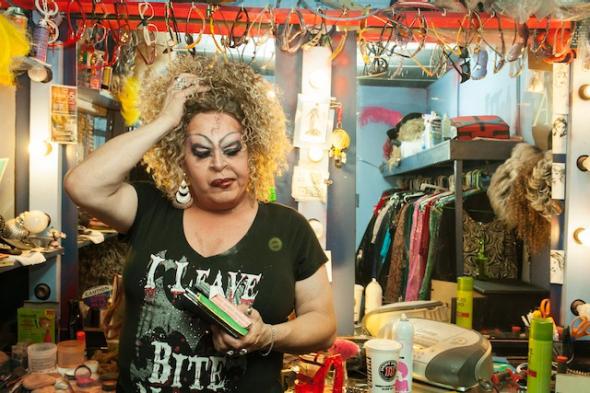Hyperallergic has a lovely post up introducing South of the Ohio, the most recent documentary project of photographer and filmmaker Christian Hendricks, that’s worth a look. Through photo, video, and audio portraits, Hendricks sought to explore queer life in the South during a road trip through much of the region this past summer. The images and other records that he produced are appealing both aesthetically and as social documents; but more important, they challenge the pervasive conception of the South as a kind of queer dead zone. The HA piece explains:
As far as queer narratives go, the South is often times portrayed as a dangerous, highly religious and completely queer intolerant region of the United States. It’s something that Hendricks was aware of, and careful to explain through the project itself.
“I’ve gotten in trouble with this a little bit — people online thought I was trying to dig up stories and shame it, which was not the point of the project at all,” says Hendricks. “The south, like any region, is changing.”
Hendricks is right that the South is undergoing all kinds of major shifts (cultural as well as economic), and, like most things there, they are happening slower than some of us would like. But, as a Southern boy (gone Yankee) myself, I suspect that queer visibility in my home region will always be manifested somewhat differently than it is in gay meccas like New York, San Francisco, and Chicago. An enhanced dependence on family and neighborly relations, distinct codes of public etiquette, and a different understanding of the individual’s relationship to the community all mean that queer people have found and will likely continue to find unique ways of expressing their identities.
However, to recognize that visibility may look different in different places is not to apologize for oppression, and therein lays the real beauty of Hendricks’ remarkable project: He shows that in the South, queer people of all stripes are not only surviving, but are making lives—like the non-biological, mostly African-American female Perryon family of Mississippi—that work for them. And isn’t that, in the end, what being queer is all about?
You can purchase a book version of the project on Hendricks’ site.
